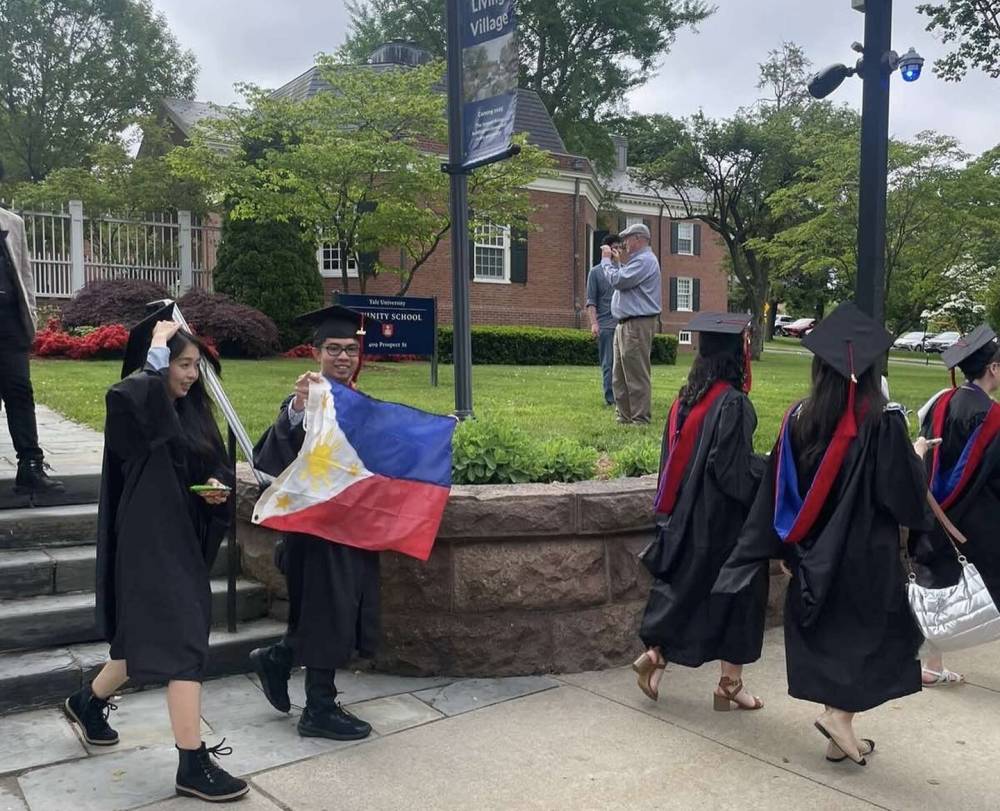Why I came home after 2 years in the US

Home is one of the things we take for granted the most. That’s something I realized as I moved back to the Philippines after two long but fruitful years of studying in the United States, for which I’m eternally grateful.
I know that many people have important reasons to want to migrate to and live in the US. My Gen Z peers, as well as older generations, were brought up to look to the US as the ultimate end goal. One ought to work hard to eventually secure US citizenship and buy a house, and I will not doubt for one second that countless people have benefited from this “American dream.” Here, I remember our Filipino American nurses who are appreciated and paid well, they who can afford houses and cars, an unfortunately unreachable goal for many in the Philippines.
But, as I have learned, life is about choosing the ups and downs one wants to confront. The US might pay better in salaries (generally), but the cost of living there can be absolutely out of this world. (As an example, I paid $2,100 per month for a shared apartment unit—not at all a mansion—in New York City. Yes, that’s more than P100,000 every single month on rent alone.)
Longing
When one tries to analyze the political situation in the US, one pesky issue Americans think about is the crazy-high prices of everything from gas to fast food. Unfortunately, I can confirm this with rock-solid certainty. One day in late 2022, I found out that one Big Mac and fries (no drink) at McDonald’s cost me over $10, around P600. This was in New Haven, Connecticut, where my alma mater is. That’s for one meal and for one person. Imagine a family of five.
Moreover, the US is incredibly far from the Philippines, meaning, I’d have to spend more than P50,000 just to be able to come home on Christmas. I also wouldn’t be too comfortable matriculating my future kids in some American school, where one random school day might be their last. Unfortunately, that’s not an exaggeration, if parents of school shooting victims are to be asked.
In my two years in the US, I made three trips back to the Philippines: for Christmas in 2022, summer in 2023, and Christmas in 2023. (I refuse to calculate how much that cost.) Somehow, the recurring theme during all three trips consisted of longing for the next one. Seriously!
During the summer of 2023, my parents gently encouraged me to stay in the US for Christmas. Within a month of my returning to the US during that summer, my tickets for the Christmas season were booked. I couldn’t stop myself from coming home—nor did my parents dispute it.
Common good
I share the eager sentiments of OFWs when they come back home. The feeling is one of profound excitement and comfort knowing that, once again, I will be among family. Once again, Asian food galore. Once again, a Filipino Christmas will not fail to brighten up the season. And once again, I am no longer the foreigner. It’s an amazing feeling!
Take something away for a moment and its value is better appreciated, as I learned the painful way.
So, what’s the takeaway?
Especially for those of us who have more, we ought to shape our home into a better place. This means using our powers and capabilities wisely, with our good and the common good in mind.
Our own good and the common good don’t have to be at odds. Indeed, if the former is prioritized, then that is selfishness, which leads to insecurity and the never-ending desire to want more. It traps us! Look at our Filipino politicians: They might be powerful but clearly not the happiest. Proof? They bicker and turn against each other. They go through great lengths to fool the Filipino people, stealing money and even faking citizenship, and they still end up feeling insecure and wanting more. That’s their sad life.
Hence, let us use our own unique capabilities and life circumstances toward our good and the common good. Hope is contagious—as we all can testify if we simply open ourselves to the good—so let us be agents of its propagation here at home.
Email the author at aaron.medina@yale.edu.

















